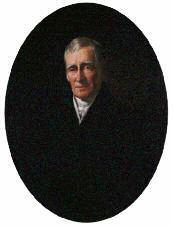Related Research Articles

Charles Arbuthnot was a British diplomat and Tory politician. He was Ambassador to the Ottoman Empire between 1804 and 1807 and held a number of political offices. He was a good friend of the Duke of Wellington. His second wife, Harriet, became a hostess at Wellington's society dinners, and wrote an important diary cataloging contemporary political intrigues.

Sir Samuel Romilly, was a British lawyer, politician and legal reformer. From a background in the commercial world, he became well-connected, and rose to public office and a prominent position in Parliament. After an early interest in radical politics, he built a career in chancery cases, and then turned to amelioration of the British criminal law.

Matthew Wren was an influential English clergyman, bishop and scholar.

Thomas Musgrave was Archbishop of York from 1847 to 1860.

George Butler was an English schoolmaster and divine, Headmaster of Harrow School from 1805 to 1829 and Dean of Peterborough from 1842 to his death in 1853.

Sir Edward Ryan PC FRS was an English lawyer, judge, reformer of the British Civil Service and patron of science. He served as Chief Justice of Bengal from 1833–43.

William Frederick Chambers, KCH (1786–1855) was a British physician.
The dissenting academies were schools, colleges and seminaries run by English Dissenters, that is, those who did not conform to the Church of England. They formed a significant part of England's educational systems from the mid-seventeenth to nineteenth centuries.

Charles March-Phillipps was a British Radical politician from Garendon Park in Leicestershire. He sat in the House of Commons in two periods between 1818 and 1837.
James Freeman Dana was an American chemist.

John Merewether was an English churchman, Dean of Hereford from 1832, known also as an antiquary.

George Neville-Grenville, named George Neville until 1825, was Dean of Windsor in the mid nineteenth century.
John Courtney (1734–1806) was an English diarist, lawyer and property owner. He attended Trinity College, Cambridge, where received legal training, and inherited lands and properties in and around Beverley, Yorkshire, where he lived and served in the local militia. He kept diaries from 1759 to his death.
James Walker was an Episcopalian bishop who served as the Bishop of Edinburgh (1830–1841) and Primus of the Scottish Episcopal Church (1837–1841).
William Henry Bonsey was an English first-class cricketer active in 1839 who played for Marylebone Cricket Club (MCC). He was born in Upton-cum-Chalvey and died in Eastbourne. He appeared in two first-class matches.

The Leeward Islands Station originally known as the Commander-in-Chief at Barbadoes and the Leeward Islands was a formation or command of the Kingdom of Great Britain and then the United Kingdom's Royal Navy stationed at English Harbour, Antigua, Leeward Islands. It existed from 1743 to 1821.
Edward Protheroe (1774–1856) was an English merchant, ironmaster and coal-owner in the Forest of Dean, and plantation owner in Jamaica. He served as Member of Parliament for Bristol from 1812 to 1820.
References
- ↑ "Dawes, Richard (DWS813R)". A Cambridge Alumni Database. University of Cambridge.
- W. C. Henry, A biographical notice of the Very Revd Richard Dawes, dean of Hereford (1867)
- 'Committee of council on education: minutes', Parl. papers (1847–8), 50.4–14, no. 998 [schools inspected in southern district]
- 'Select committee on scientific instruction', Parl. papers (1867–8), 15.39, no. 432 [minutes of evidence]
- H. W. Pettit Stevens, Downing College (1899)
- J. W. Anderson, 'A Hampshire village school', 'The illiterate Anglo-Saxon' and other essays on education, medieval and modern (1946), 142–54
- Romilly's Cambridge diary, 1832–42: selected passages from the diary of the Rev. Joseph Romilly , ed. J. P. T. Bury (1967)
- S. French, The history of Downing College, Cambridge (1978)
- D. Layton, Science for the people (1973)
- N. Ball, 'Richard Dawes and the teaching of common things', Educational Review, 17/1 (Nov 1964), 59–68
- J. W. Cross, ed., George Eliot's life as related in her letters and journals, 1 (1885)
- E. Frankland, Sketches from the life of Edward Frankland, ed. M. N. W. and S. J. C. (privately printed, London, 1902)
- H. H. Moore, A Forgotten Pioneer of a Rational Education and His Experiment, II, Parents' Review volume 15, 1904
- Dawes, Rev. Richard, Suggestive Hints Towards Improved Secular Instruction, 1857